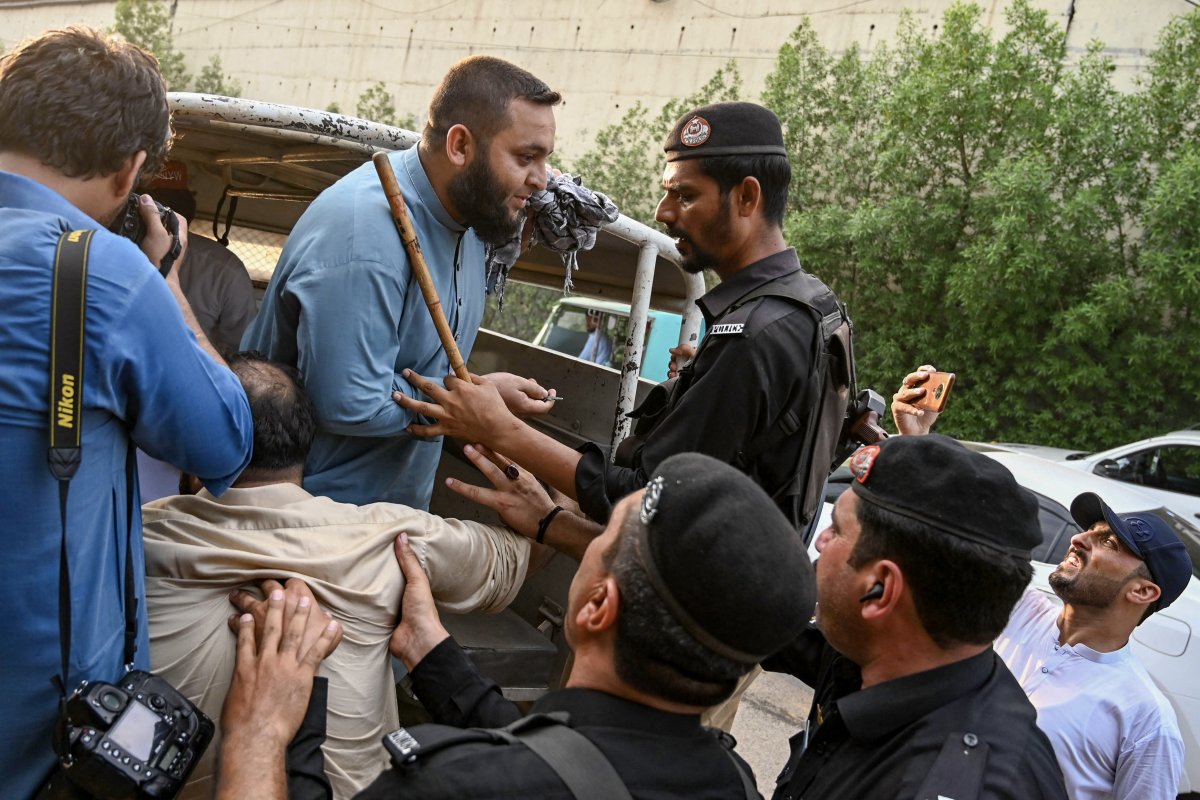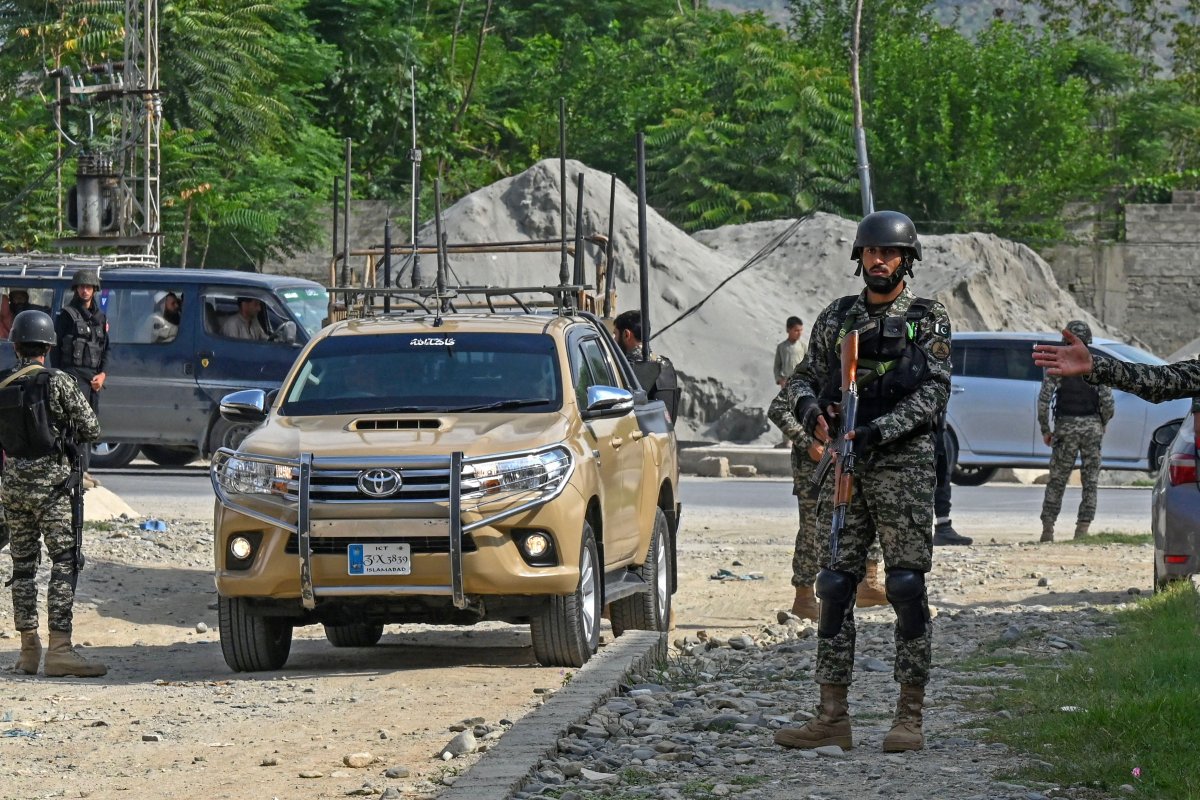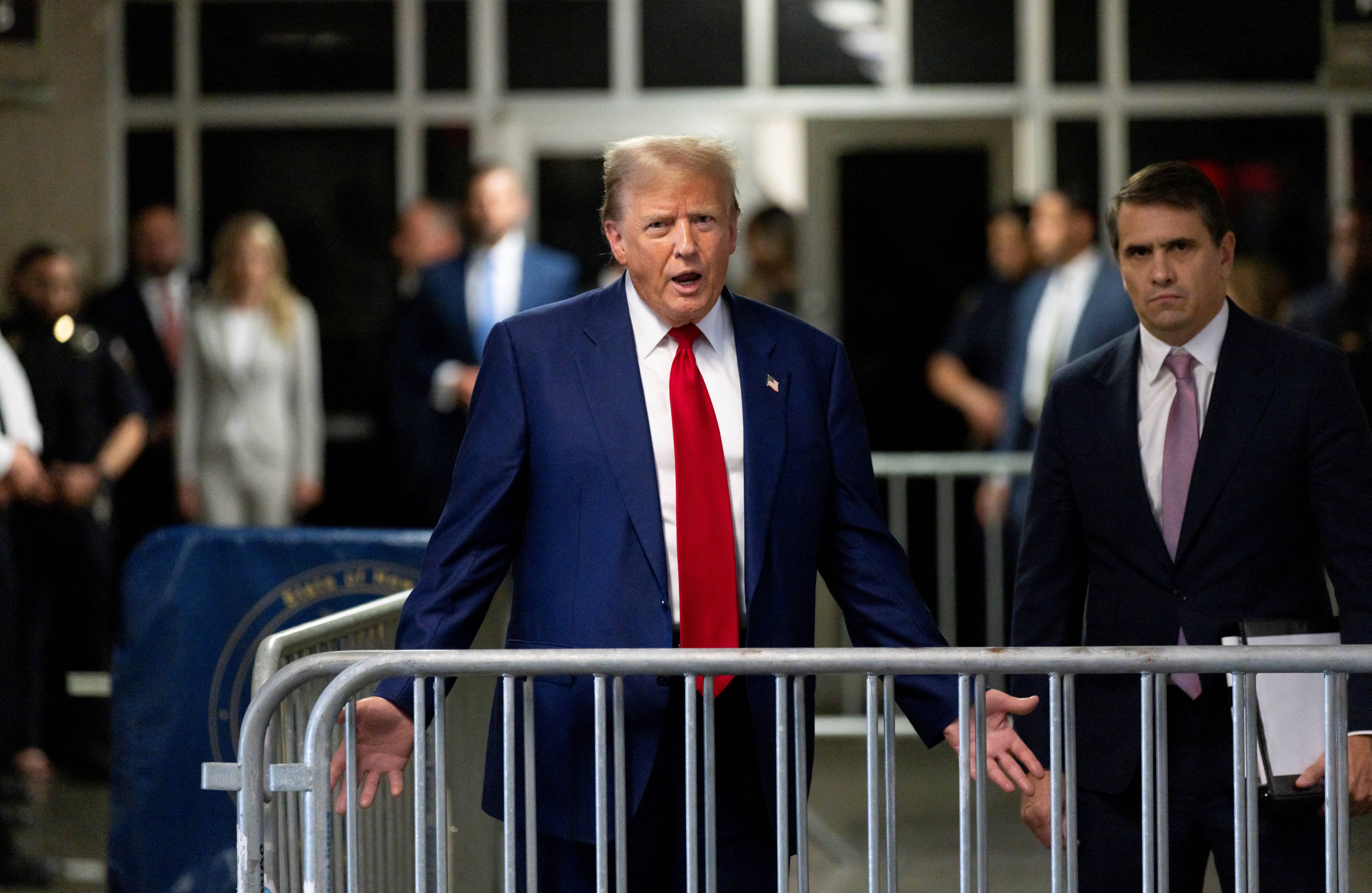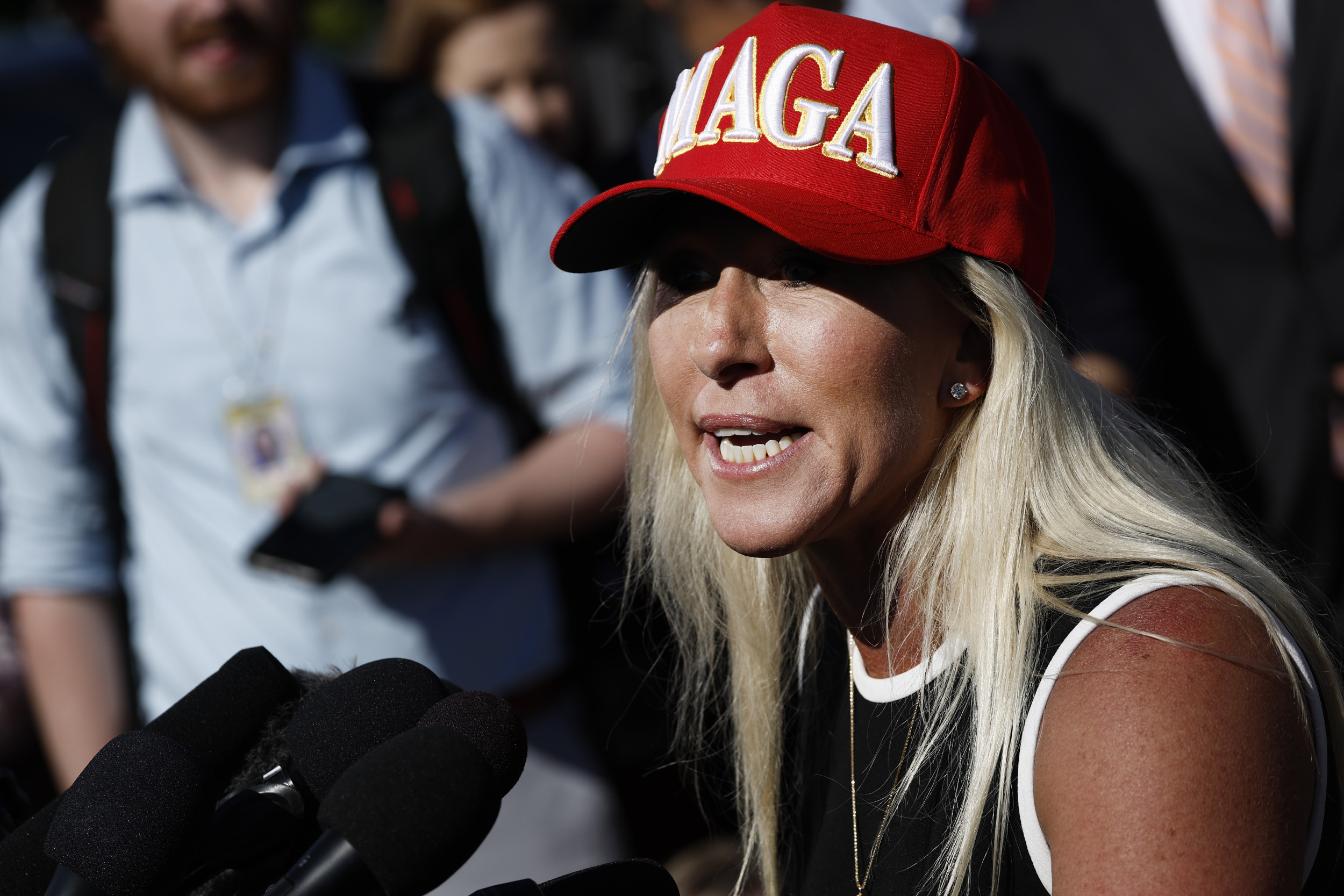The arrest and sentencing of former Pakistani Prime Minister Imran Khan amid a protracted political drama that has played out since his ousting last year has sparked a new wave of tensions in the nuclear-armed nation of 240 million people.
And with a rise in militant attacks accompanying the political woes, one former Pakistani minister has told Newsweek that the government's focus on jailing Imran Khan and his supporters is undermining the nation's stability and distracting from counterterrorism efforts, giving insurgents an opportunity to take actions that have consequences for the region and beyond.
Current Pakistani officials reject this notion, while the White House is watching closely with concern as the crisis unfolds.
"When you try to basically dismantle, arrest, abduct the most popular man in the country and then sooner or later put all the party leaders in prison or in hiding, it's not going to cause any form of stability, which is going to lead to further economic instability, which is going to lead to Pakistan being destabilized," Syed Zulfiqar Bukhari, who served as Khan's special assistant on overseas Pakistanis and human resource development, told Newsweek.
"And an unstable Pakistan is not good for the world, it's not good for the region," he added. "It creates many other problems, along with the increase in terrorism, as we're seeing recently."

Imran Khan, a former cricket star who went on to found the Pakistan Tehreek-e-Insaf (PTI) party, won the July 2018 election and served as prime minister before being ousted in an April 2022 no-confidence vote. He was succeeded by current Prime Minister Shahbaz Sharif, whose administration has accused Imran Khan of a litany of offenses ranging from terrorism and inciting riots to blasphemy and corruption.
Among the accusations is a charge that he illegally sold state gifts while in office, for which the ex-premier was found guilty on Saturday by a court in Islamabad and sentenced to three years in prison.
Imran Khan has denied this charge along with the others levied against him, calling them part of a political plot to silence his party, which remains the most popular in the country, and to prevent him from running in the upcoming elections. In the wake of the latest ruling, the Electoral Commission of Pakistan announced that Imran Khan would be barred from holding public office for five years, further eroding his hopes to return to power.
But Bukhari, who today serves as an international spokesperson for PTI, called it a "frivolous case" that "has no legs to stand on." He was confident that "every senior judge will dismiss" it and said the party was currently in the midst of an appeal process.
Amid this legal battle, Bukhari argued that government efforts being put into alleged crackdowns against PTI members could be better utilized to counter the rising threat of militancy in the country.

While Bukhari said that he "would never blame any Pakistani for any militant attack" in the country, he accused Pakistani Prime Minister Shahbaz Sharif's administration of "misusing resources" and "jeopardizing the public, the people of Pakistan's security" in "trying to clamp down on PTI and Imran Khan's team."
Bukhari warned that this "mishandling" was especially dangerous in the northwestern region, where the Islamic State militant group's Khorasan branch (ISIS-K) claimed responsibility for a suicide bombing late last month that killed more than 60 people at an Islamist political rally in the Bajaur district of Khyber Pakhtunkhwa (KP) province, bordering Afghanistan.
"Everything is limited, especially in the northern areas and in KP, where we've seen this rise in terrorism. Every single personnel needs to be combatting it so it can't increase," Bukhari said. "Instead, unfortunately, they're using [resources] to ransack our homes, abduct people, beat people up, arrest them. The same resources need to be put to much better use before this terrorism monster gets out of hands once again."
Should this happen, he warned Pakistan would find it even more difficult to draw in foreign investment viewed as critical to rehabilitating the country's cash-strapped economy.
Responding to Bukhari's allegations, a Pakistani official speaking in a personal capacity on the condition of anonymity rejected the notion that the government was "pursuing the former prime minister."
"He is being tried under relevant laws," the Pakistani official told Newsweek. "There is no correlation between judicial processes related to the former prime minister and a surge in terrorism. In any case, terrorism cannot be justified under any pretext."
In a recent interview with Newsweek, Pakistani Ambassador to the U.S. Masood Khan also discussed "the horrendous terrorist acts that have been committed in the recent past" in Pakistan. He asserted that such threats continue to "emanate from Afghan soil" in the wake of the U.S. military withdrawal from Afghanistan and the Taliban takeover two years ago.
After the establishment of the Taliban's Islamic Emirate, Ambassador Khan said militant groups are "trying to copycat this model and impose it on Pakistan." The Pakistani envoy specifically identified the threat posed by ISIS-K, which has also conducted attacks against the ruling Afghan Taliban and Afghan civilians, as well that posed by Tehreek-e-Taliban Pakistan (TTP), also known as the Pakistani Taliban.
"They are attacking Pakistani security personnel and civilians," Ambassador Khan said at the time. "Sometimes these attacks are planned and sometimes they are random. They can target any place or any civilian or security installation."
He credited both the U.S. and China with supporting his country amid its security struggles. At the same time, he argued that "the United States needs to pay more attention to the region," especially "to improve the security situation."

Other high-profile Pakistani officials expressing concerns over the country's stability amid economic and political crises in recent interviews with Newsweek include Defense Minister Khawaja Muhammad Asif and Petroleum and Natural Resources Minister Musadik Malik. Both saw Imran Khan as contributing to these woes through his open challenging of Pakistan's authorities.
Imran Khan too shared his concerns regarding Pakistan's stability following his previous arrest and subsequent release in an interview with Newsweek in June, when he also accused the U.S. of supporting a conspiracy to have him removed from power.
U.S. officials have rejected Imran Khan's allegations and President Joe Biden's administration has referred to Imran Khan's arrest as an "internal matter for Pakistan."
This position was most recently voiced during a press briefing Tuesday by U.S. State Department spokesperson Matthew Miller, who stated that "we continue to call for the respect for democratic principles, human rights and the rule of law in Pakistan as we do around the world."
On the security front, however, White House National Security Council Strategic Communications Coordinator John Kirby expressed concern about recent events in Pakistan in response to Newsweek's question during a virtual press call the following day.
"We are obviously concerned about any actions, particularly violent actions that can contribute to instability in Pakistan," Kirby said, "or frankly any other country with whom we share a set of common interests when it comes to counterterrorism."
"So, we're watching with concern, of course," he added. "But Pakistan is a partner, particularly when it comes to the counterterrorism threat in that part of the world, and we have every expectation that they will remain so."
Uncommon Knowledge
Newsweek is committed to challenging conventional wisdom and finding connections in the search for common ground.
Newsweek is committed to challenging conventional wisdom and finding connections in the search for common ground.
About the writer
Based in his hometown of Staten Island, New York City, Tom O'Connor is an award-winning Senior Writer of Foreign Policy ... Read more
To read how Newsweek uses AI as a newsroom tool, Click here.








